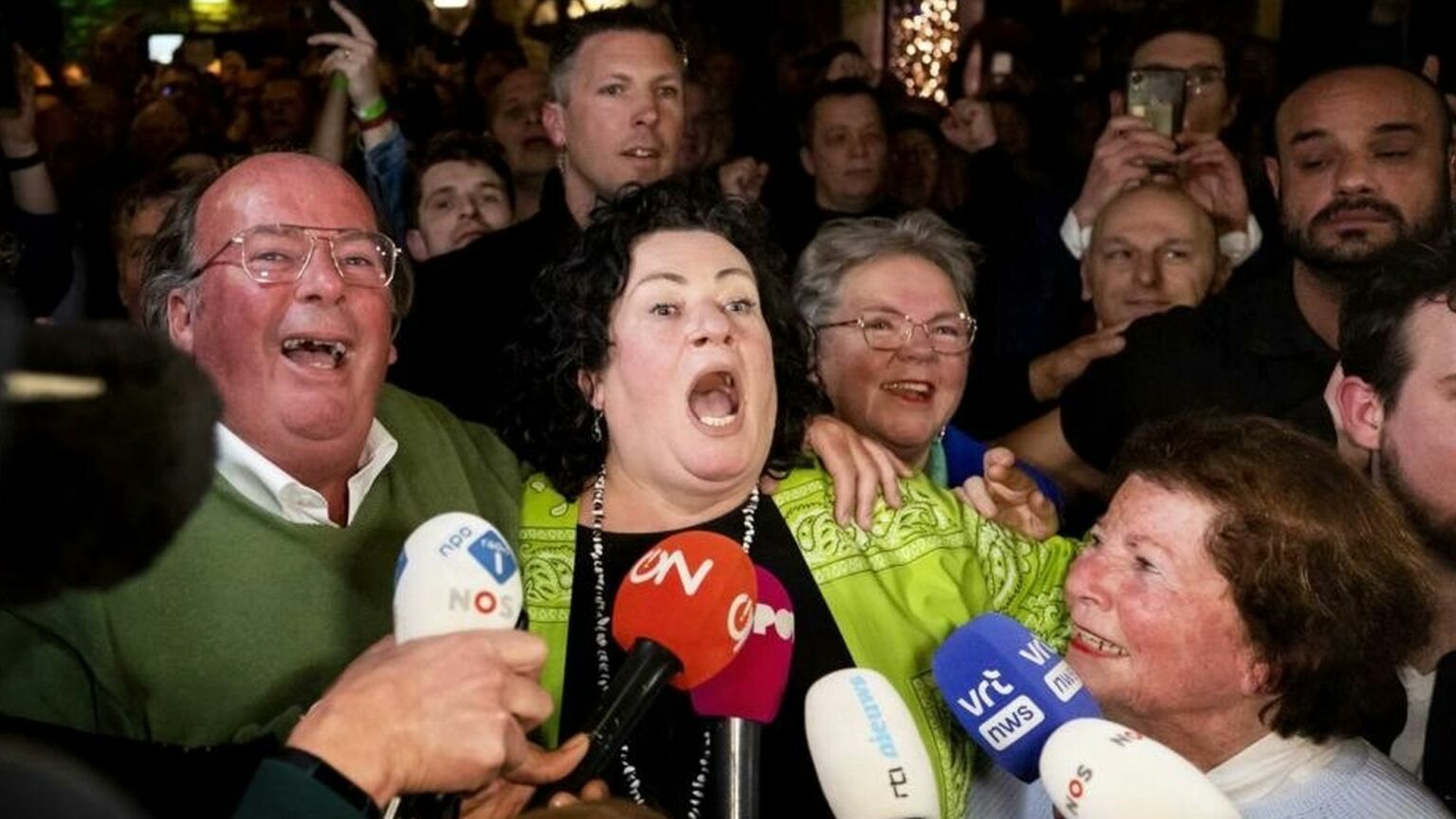Dutch voters are rising up against elite eco-mania
The stunning success of the farmers’ party has shattered the cosy, green consensus.

In last week’s provincial elections in the Netherlands, an insurgent party, the Farmer-Citizen Movement (BBB), took the largest vote share in all 12 Dutch provinces.
This is a remarkable win for the farmers’ party. The BBB (BoerBurgerBeweging) was only founded in 2019. It was born out of sympathy for the widespread Dutch farmers’ protests against the government, a populist movement which is still going strong today. The party is focussed on issues related to agriculture and the countryside. Among its proposals are a ministry for the countryside and allowing farmers to have more say in matters of agricultural policy. It also hopes to reduce the power of the European Union in the Netherlands, saying that while the Netherlands should remain a member state, the EU should aim to be merely a trading bloc, not a federal superstate (if only).
This unlikely victory means much more than just local seats. The provincial councils determine the makeup of the Dutch senate, its Eerste Kamer (first chamber). The Eerste Kamer functions much like Westminster’s House of Lords. It scrutinises the governing lower house (the Tweede Kamer) and has the power to reject proposed legislation.
In May, the new crop of provincial leaders will elect the Eerste Kamer, with the BBB projected to gain 17 seats, the largest of any party. This has the potential to massively shake up Dutch politics – particularly so given the scale of the losses endured last week by the current ruling coalition, comprised of prime minister Mark Rutte’s VVD party, the centrist D66 party, and the Christian-democratic CDA and ChristenUnie parties. After a weak performance in the provincial elections, the coalition parties are projected to end up with just 24 senate seats in May, down from their current total of 32.
In a chamber with just 75 seats, such swings are hugely significant. Parties with only one or two seats will now have an opportunity to really make their presence felt by teaming up with the BBB. Some of the ruling coalition parties may even be tempted to take up more populist policies, which are less likely to be blocked by a BBB-dominated senate. There is a real potential here for government policy to be brought more in line with voters’ concerns.
However, just what this result will mean for the government’s stand off with the farmers remains to be seen. At the heart of farmers’ concerns, and undoubtedly one of the drivers in the huge vote for BBB, is the Netherlands’ controversial nitrogen law. While it is true that Rutte’s government will now likely have less freedom to pass new legislation, the BBB’s senate gains will not give it the power to change this policy.
Currently, the government plans to halve the Netherlands’ nitrogen emissions by 2030. To achieve this, it wants to force ‘peak polluter’ businesses to reduce their nitrogen emissions. This mainly means farmers, who use nitrogen in fertilisers. Dutch farmers rightly see this policy as an existential threat to their livelihoods. Some farms would have to cut their livestock numbers by up to 50 per cent. Many would have to downsize or cease operations altogether.
Unfortunately, the nitrogen policy is part of the European Union’s harsh Net Zero targets, which have been enshrined in EU law. And with Europe’s green elites wedded to this idea, any movement to reverse it will be an uphill battle. Indeed, the mere whisper of doing so would lead to the Netherlands being placed on the EU’s naughty step – something the Dutch political class would not be prepared to countenance.
This is not the first time the Netherlands has experienced a major populist upset. In the 2019 provincial elections, the right-wing populist Forum for Democracy (FvD) party made huge gains, in what was widely seen as dealing a bloody nose to Mark Rutte’s government. Yet the FvD has had remarkably little impact on politics in the long run. Rutte remained comfortably at the helm after the General Election that followed in 2021. Largely influenced by directives from the European Union, he has still been able to impose unpopular and unwanted policies on the Dutch public, including the hated nitrogen law.
As for the FvD, it has been all but swept away in the most recent elections. It is projected to be left with just two seats in the Eerste Kamer from its former tally of 12. Now, the question for the BBB is whether it can avoid this fate and properly make its mark on Dutch politics.
Perhaps the example of the FvD explains why prime minister Mark Rutte seems so unphased, describing last week’s election result simply as ‘not the victory we wanted’. Such dismissive responses are typical of the ruling class’s complacency.
The runaway success of the BBB suggests the elites should be anything but complacent. The party that will soon hold the most senate seats didn’t even exist four years ago. It is a striking testament to the strength of public anger at the government – and a clear rejection of the elites’ madcap green agenda. The farmers’ revolt can’t be ignored forever.
John Lee Shaw is a freelance writer based in the Netherlands. Follow him on Twitter: @JohnLeeShaw.
Picture by: Twitter / rightblend .
To enquire about republishing spiked’s content, a right to reply or to request a correction, please contact the managing editor, Viv Regan.








Comments
Want to join the conversation?
Only spiked supporters and patrons, who donate regularly to us, can comment on our articles.